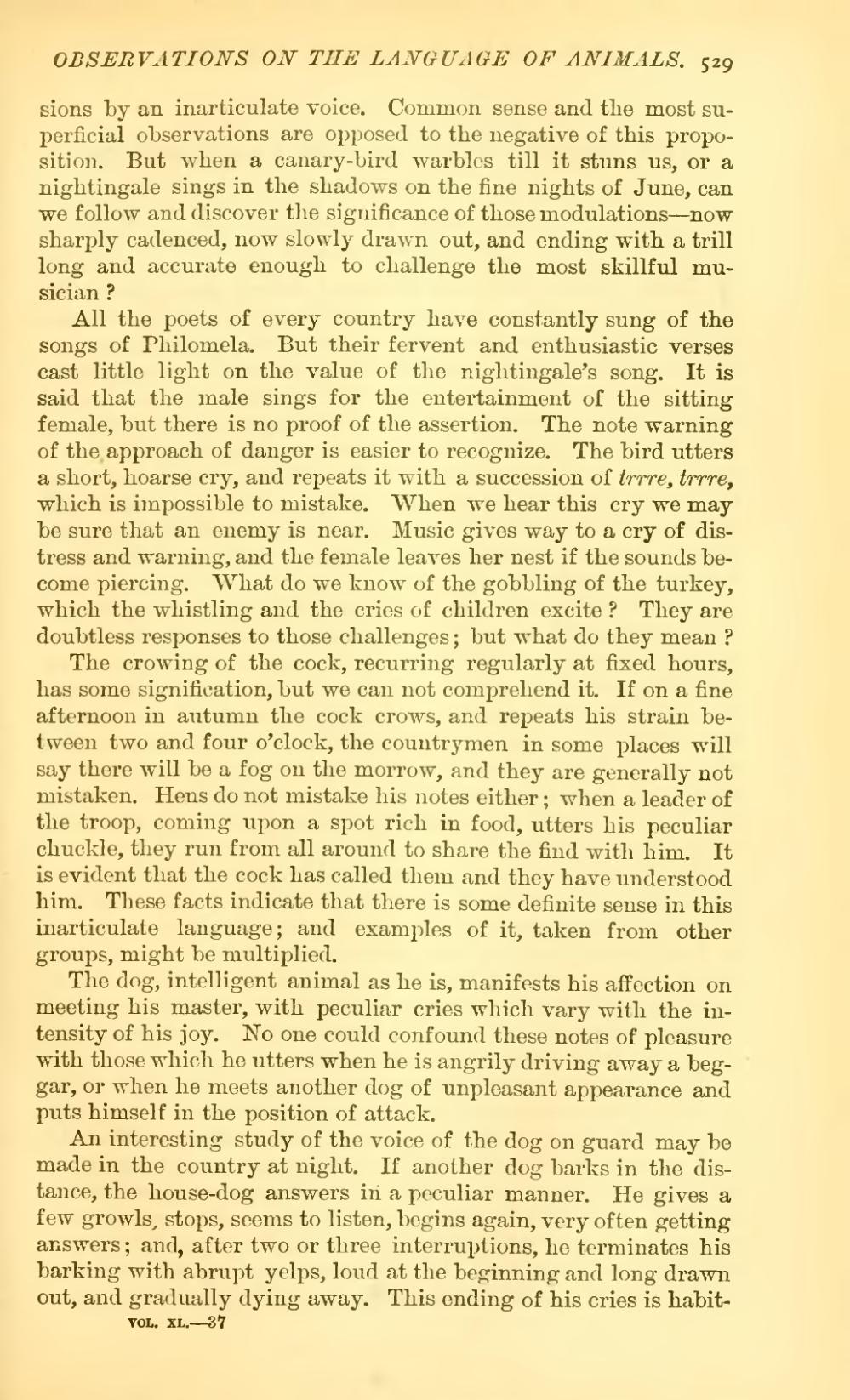sions by an inarticulate voice. Common sense and the most superficial observations are opposed to the negative of this proposition. But when a canary-bird warbles till it stuns us, or a nightingale sings in the shadows on the fine nights of June, can we follow and discover the significance of those modulations—now sharply cadenced, now slowly drawn out, and ending with a trill long and accurate enough to challenge the most skillful musician?
All the poets of every country have constantly sung of the songs of Philomela. But their fervent and enthusiastic verses cast little light on the value of the nightingale's song. It is said that the male sings for the entertainment of the sitting female, but there is no proof of the assertion. The note warning of the approach of danger is easier to recognize. The bird utters a short, hoarse cry, and repeats it with a succession of trrre, trrre, which is impossible to mistake. When we hear this cry we may be sure that an enemy is near. Music gives way to a cry of distress and warning, and the female leaves her nest if the sounds become piercing. What do we know of the gobbling of the turkey, which the whistling and the cries of children excite? They are doubtless responses to those challenges; but what do they mean?
The crowing of the cock, recurring regularly at fixed hours, has some signification, but we can not comprehend it. If on a fine afternoon in autumn the cock crows, and repeats his strain between two and four o'clock, the countrymen in some places will say there will be a fog on the morrow, and they are generally not mistaken. Hens do not mistake his notes either; when a leader of the troop, coming upon a spot rich in food, utters his peculiar chuckle, they run from all around to share the find with him. It is evident that the cock has called them and they have understood him. These facts indicate that there is some definite sense in this inarticulate language; and examples of it, taken from other groups, might be multiplied.
The dog, intelligent animal as he is, manifests his affection on meeting his master, with peculiar cries which vary with the intensity of his joy. No one could confound these notes of pleasure with those which he utters when he is angrily driving away a beggar, or when he meets another dog of unpleasant appearance and puts himself in the position of attack.
An interesting study of the voice of the dog on guard may be made in the country at night. If another dog barks in the distance, the house-dog answers in a peculiar manner. He gives a few growls, stops, seems to listen, begins again, very often getting answers; and, after two or three interruptions, he terminates his barking with abrupt yelps, loud at the beginning and long drawn out, and gradually dying away. This ending of his cries is habit-
